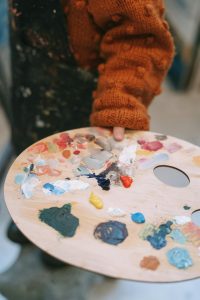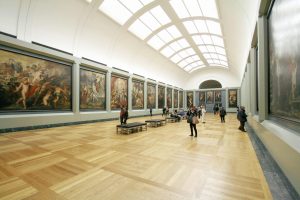
GUEST BLOG
The Importance of Arts and Culture to Wellbeing
Julius Weinberg: Ambassador for Art, Culture & Heritage
We tend to think of our activities in a compartmentalised way. Work, home, play, family, health, transport, art, housing… This is useful – it helps us focus and can make us more effective in using resources and finding solutions. However it can also be harmful. Focus on one area can be to the detriment of others and we can miss connections, overlaps and synergies.
 The purpose of the Arts and Culture is to help people enjoy life more, to give them opportunities to see things from a different perspective, to engage with others as participants and observers. That is also the purpose of being healthy. We want to be healthy so that we can do the things we enjoy, seeing friends and family, going to concerts, films, art galleries. Even those who love running don’t just want to be healthy, they want to be healthy so that they can run, and usually share their love of running with others. People love being creative, creating short-cuts when they walk, new recipes when they cook, creating gardens and games, computer programmes and jokes. It really does not matter if the short-cut leads to a hedge, the recipe fails and the garden floods. The great thing is that it is the taking part that matters, not that the output is worthy of a museum or gallery.
The purpose of the Arts and Culture is to help people enjoy life more, to give them opportunities to see things from a different perspective, to engage with others as participants and observers. That is also the purpose of being healthy. We want to be healthy so that we can do the things we enjoy, seeing friends and family, going to concerts, films, art galleries. Even those who love running don’t just want to be healthy, they want to be healthy so that they can run, and usually share their love of running with others. People love being creative, creating short-cuts when they walk, new recipes when they cook, creating gardens and games, computer programmes and jokes. It really does not matter if the short-cut leads to a hedge, the recipe fails and the garden floods. The great thing is that it is the taking part that matters, not that the output is worthy of a museum or gallery.
There is a solid evidence base for the idea that the arts and cultural activities have an important place in developing and sustaining health for individuals and communities. It is difficult to carry out formal research studies, similar to the Randomised Clinical Trials used for drugs, to prove that the Arts and Culture are beneficial for health. For a start it would be unethical to deny the control group any access to friends and any form of culture. However apart from the RCT the evidence is strong. In particular well-validated and recognised measures of “well-being” are strongly related to engagement in broad cultural activities and longer, healthier lives.
Life can be difficult and we all need ways of navigating and coping with those difficulties; those who do are called “resilient”. However we are not simply resilient/or not resilient, we become resilient largely because of the support we can call upon, family and friends, because we have learned that listening to music, dancing, playing a computer game, going walking, or visiting an art gallery helps us get through the tough times.
 Culture and the Arts are not an add-on. In many ways they are the core of what we are. We are deeply social animals, we exist to interact, and the framework for that interaction is our culture. It may be based upon nationality, religion, love of animals, football or fashion. We will never solve all the challenges of health and social care, but we will get much nearer solving some of them if we remember that our wellbeing depends upon having a rich cultural life and that we want to be healthy to live well and happily, not just long!
Culture and the Arts are not an add-on. In many ways they are the core of what we are. We are deeply social animals, we exist to interact, and the framework for that interaction is our culture. It may be based upon nationality, religion, love of animals, football or fashion. We will never solve all the challenges of health and social care, but we will get much nearer solving some of them if we remember that our wellbeing depends upon having a rich cultural life and that we want to be healthy to live well and happily, not just long!
I write this as the Co-chair of Buckinghamshire Culture whose purpose is to develop cultural opportunities and access in the County so that all residents can take part in something meaningful for them. I also happen to have trained as a doctor and know that active engagement in something you love is often the best medicine.
Read more guest blogs here.
Meet all of our ambassadors here.


